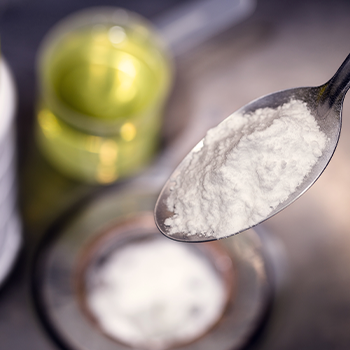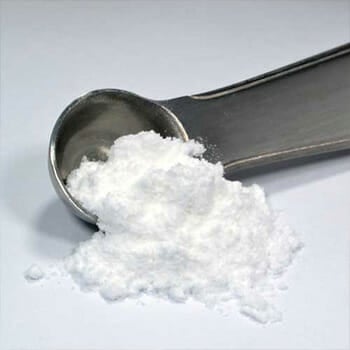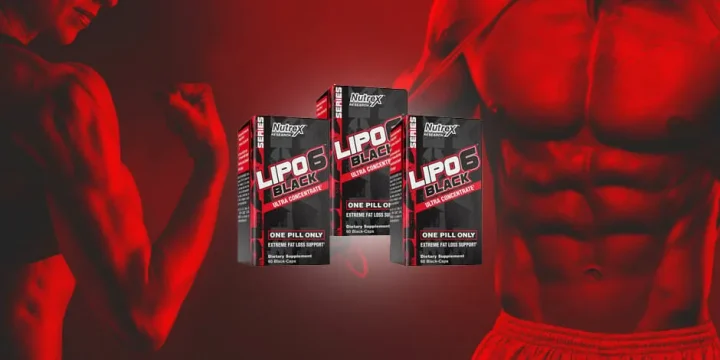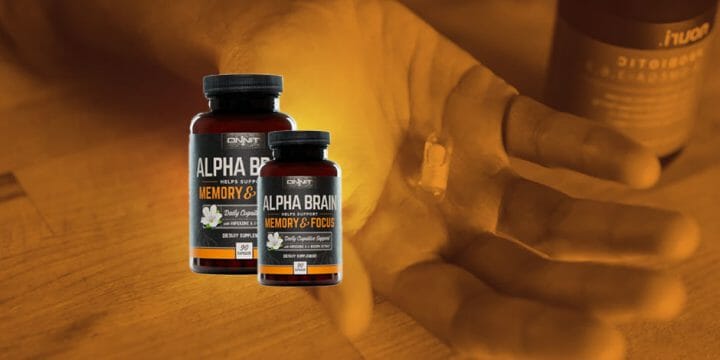Pre-workout supplements are essential, especially if you love keeping fit through exercise. They help you attain your desired lean muscled body within a short period.
Despite being selective about the supplements you are taking, there are common side effects. Actually, most people experience these side effects, but there is a way of avoiding them.
Based on my own experience and that of my clients, I have compiled common pre-workout side effects that are common. Consequently, I will give you tips on how to avoid them as you continue with your fitness journey.
Quick Summary
- Pre-workout supplements are designed to boost energy and performance, but users should be aware of potential side effects such as insomnia and dehydration.
- Common side effects include jitters, headaches, and a tingling sensation due to ingredients like caffeine and beta-alanine.
- A study by the National Institutes of Health suggests that caffeine in pre-workouts can increase thermogenesis, leading to enhanced metabolism and energy burning.
- Personally, I find that while pre-workouts can be effective, it's crucial to listen to your body and adjust usage to avoid any adverse effects.
Possible Pre-Workout Side Effects
First, let me say that most people that I talk to that had negative side effects of pre-workout supplement use usually had some allergy or food intolerance to the ingredients.
That’s why you should always check the labels to see if there’s anything in it that you know causes upset.
That being said, there are a few things that you can encounter, and you should pay close attention to how your body reacts:
- Insomnia can happen if you’re a coffee drinker and take your supplement late in the evening.
- Diarrhea is less likely, but caffeine, sodium bicarbonate, and creatine can have a laxative effect.
- Headaches and jitters can occur with high caffeine doses.
Before you panic about the effects of these pre-workouts, there are some simple steps you can take to avoid them altogether.
Related Articles:
1. Insomnia

Caffeine dietary supplements impact people very differently. If you know that coffee affects your sleep, it’s best to take it no later than 7 pm or choose caffeine-free pre-workout supplements.
Some excellent pre-workout supplements are available, and I cover a few in the reviews section.
I avoid taking pre-workout supplements with coffee after 6 pm, and when I hit the gym later in the day, I avoid it in the afternoon.
2. Diarrhea

Yes, that awful feeling you cannot bear to be more than ten paces from a toilet is one of the more disruptive effects.
First, taking pre-workout supplements on an empty stomach is not a great idea, especially after fasting. Get at least a little bit of food into you first.
Secondly, reduce the dose to half the amount of pre-workout supplements to start with. It might take your stomach a few days to get used to it.
3. Dehydration

Yes, pre-workouts can cause dehydration, but it can be easily avoided.
You might find that you feel a lot thirstier than normal when you’re exercising and this can be due to the combination of substances in your chosen pre-workout supplements.
Some pre-workouts are specifically designed to help you tap into glycogen reserves which is an energy resource that binds directly to water, improving exercise performance.
My main tip here is not to wait until you feel thirsty and your mouth is dry. This is actually a more advanced stage of dehydration and will have a significant impact on your athletic performance.
4. Headaches

These are mostly associated with high caffeine doses in pre-workout supplements and dehydration. Some ingredients are added to boost your blood flow, and they do this by expanding blood vessels.
Some people are sensitive to this effect in the brain.
It is less common for most pre-workout supplements to trigger migraines, but if you find that you’re consistently suffering from headaches, you should stop taking the supplement for a few days.
The amount of pre-workout you should take is to start with a smaller portion, and it’s always best to take a few extra cups of water.
5. High Blood Pressure

One of the effects of all stimulants in pre-workout supplements is an increase in your heart rate, and this can also cause high BP.
If you have issues with your BP anyway, then it’s probably best to avoid these stimulating substances altogether.
It’s important to check your BP before and after working out and taking pre-workout supplements. If it’s significantly elevated at these times, then start by choosing caffeine-free pre-workouts.
Just take your pre-workout supplements in moderation and you'll do just fine.
You May Also Like: Is Pre-workout Bad For Your Heart?
6. Tingling Sensations

Some people are more sensitive to certain ingredients like beta-alanine or vitamin B3, and as these directly impact the nervous system, there is a chance that you’ll feel some tingling throughout your body after taking a pre-workout.
It’s perfectly normal and usually only lasts a short while, which shouldn't hinder your athletic performance even with pre-workout supplements.
When this does happen to me, I find it more distracting than problematic, but I’ve become used to it and just ignore it.
Once you start your exercise program, it usually goes away pretty quickly.
More Pre-work Articles:
What Is In Pre-Workout Supplements?

Essentially, you will usually find a handful of ingredients in all the top pre-workout products, which include creatine, caffeine, citrulline, branched-chain amino acids (BCAA), and beta-alanine, to name just a few.
While the blend and amount of the different pre-workout supplements will vary, the main purpose is to boost energy to give you more strength and endurance during a workout session. It allows you to gain lean body mass while preventing unhealthy weight gain.
In most cases, they are powders that you mix into a drink, taking about 15 minutes before you start training.
"The pre-workout you consume can also be tailored to improve a variety of factors such as endurance, strength, or muscle growth."
- Peter Tzemis, Bachelor of Health Science
What Does Pre Workout Do?

Basically, according to LiveScience, the idea behind taking a pre-workout supplement is to increase energy levelsto help you perform better during exercise and training [1].
This might sound like some illicit form of doping, but the pre-workout supplements you can buy off the shelf are completely legal and contain only natural substances.
You're not going to perform like the Incredible Hulk suddenly, but an exercise performance boost of 10 to 25% is achievable.
And this will help your body to build more muscle mass while at the same time helping with blood flow and weight loss. It's due to the combination of a complete amino acid profile and beta-alanine.
Let’s take a look at some common ingredients.
Pre-Workouts With Creatine

For an excellent reason, creatine is one of the most sought-after pre-workout ingredients. According to HealthLine, every cell in your body needs creatine to produce energy [2].
When your muscles receive a boost from this substance, they will have more energy to help increase strength and stamina for maximum pumps.
This performance boost will help to build muscles faster while at the same time burning through more fat. Basically, a double boost to your health.
However, some people prefer
Pre-Workouts With Caffeine

I have found that caffeine consumption in pre-workouts is usually between 1 to 2 regular 8-ounce cups of coffee. It’s not huge, but you want to keep this in mind if you’re a coffee drinker to avoid the jitters.
The health benefits come in two distinct ways.
First, a study by the National Institute of Health has shown that caffeine in pre-workouts boosts thermogenesis, which is a fancy way of saying that your metabolism increases body heat by burning more energy [3].
Secondly, it has been proven to boost mental and physical endurance by up to 12%. So, you can work harder and burn more fat.
"The most prevalent ingredient in pre-workout supplements is caffeine. Typical supplements can contain anywhere from 100 to 300 mg of caffeine, which is up to three times the amount in a cup of coffee."
- Kay Ireland, Certified Group Fitness Instructor
Role of Adaptogens in Mitigating Pre-Workout Side Effects
Adaptogens, such as Rhodiola and Ashwagandha, have the potential to alleviate the stress placed on the adrenal system by stimulants in pre-workout supplements.
These herbs are known for their ability to help the body adapt to stressors, potentially mitigating the risk of adrenal fatigue associated with chronic stimulant use.
FAQs

1. Can You Take Too Much Pre Workout Powder?
Yes, you can take too much pre workout powders which can leave you feeling unwell and jittery. The main reason for this is that too many stimulants like caffeine will increase your heart rate, cause stomach discomfort and a lack of mental focus.
2. Can You Take Pre-Workout On An Empty Stomach?
Yes, you can take many pre-workout supplements on an empty stomach, but some people might encounter stomach upset and even diarrhea. The advantage is that it’s absorbed very quickly, but I generally recommend at least a small snack before you take it.
3. Can Pre-Workout Supplements Cause Kidney Failure?
Many pre-workout supplements can only cause kidney failure if taken in excessive amounts while ignoring negative side effects. Some ingredients cause high blood pressure and dehydration which can negatively impact your kidneys. But actual failure is highly unlikely and would require sustained high doses.
4. Is Pre Workout Bad For Your Heart?
Yes, pre-workout can be bad for your heart if you take it in very large doses or you have an underlying heart condition. Both caffeine and creatine increase the heart rate and blood pressure, but as long as you stick to the recommended amounts and don’t have known issues, then you should be just fine.
5. Does Pre-Workout Make You Fat?
No, pre-workout doesn’t make you fat, but it can increase your body weight. The reason for this is that muscle weighs more than fat, and as your body burns through more fat and produces more muscle, you might actually notice a weight increase. It’s more important to look at your BMI in these situations, than just what the scales are saying.
6. Is Pre-Workout Addictive?
No, pre-workout isn’t addictive, even though some people say that caffeine has some addictive properties. You might feel like you become dependent on it for maximum performance, but there are no studies confirming that any of the ingredients are addictive.
7. Can Pre-Workout Cause Or Worsen Depression?
Generally speaking, pre-workout does not cause or worsen depression. But there are some products out there that contain ingredients that have been tied to depression. Look out for artificial sweeteners like Aspartame or a substance called Dimethylamylamine (DMAA) and avoid them if you have mental health concerns.
Related Post: Does Pre-Workout Go Bad?
References:
- https://www.livescience.com/53095-do-preworkout-supplements-work.html
- https://www.healthline.com/nutrition/creatine-for-muscle-and-strength
- https://pubmed.ncbi.nlm.nih.gov/2333832/
About The Author
You May Also Like






